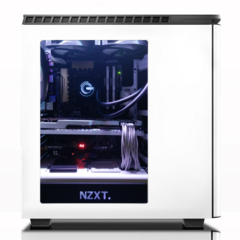The M1 Benchmarks Continue - Emulated performance appears to *still* outperform any intel-based Mac
-
Topics
-
0
-
0
-
Russsell ·
Posted in Networking1 -
3
-
0
-
1
-
4
-
2
-
resonate ·
Posted in Laptops and Pre-Built Systems0 -
jstrafe ·
Posted in Build Logs3
-
-
play_circle_filled

Latest From Linus Tech Tips:
The BRIGHTEST Monitor We've EVER Seen - Sun Vision rE rLCD Display
-
play_circle_filled

Latest From ShortCircuit:
The World's Fastest CPU (Technically...) - Intel i9-14900KS
















Create an account or sign in to comment
You need to be a member in order to leave a comment
Create an account
Sign up for a new account in our community. It's easy!
Register a new accountSign in
Already have an account? Sign in here.
Sign In Now